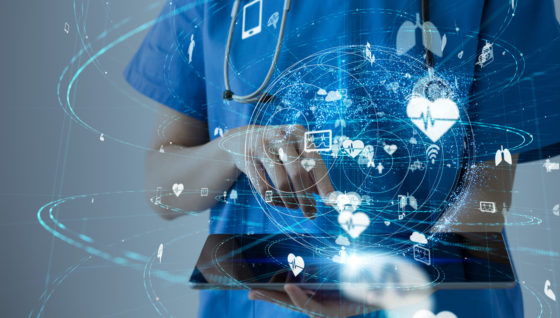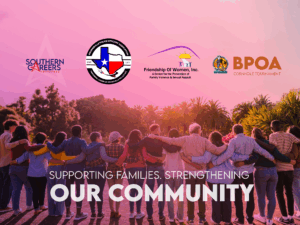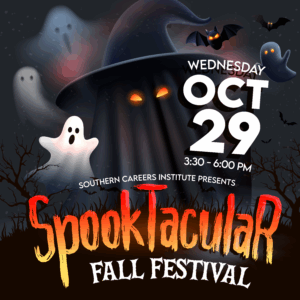A positive result of all this data being collected is job creation in many fields, including the healthcare, for those who can work with data.
Let\’s take a look at how data science is transforming healthcare.
What is Data Science?
To understand how data science is transforming healthcare, we must first understand data science itself. Data science is the organization and analysis of large amounts of data, aka Big Data.
Big Data is possible thanks to the recent advances in technology. This data is not just numerical, it is words and phrases in the form of comments on social media or customer reviews on commercial websites.
It is also pictures, maps, and videos posted online. And lastly, it is bank records and electronic medical records.
This information provides valuable insight into consumer and individual behavior and is of great benefit to business.
With data science, businesses can now tell when and where their products sell best and understand their audiences.
This allows them to then offer the best possible customer experiences. Data science has also changed the face of healthcare.
How Data Science Is Transforming Healthcare
So, how exactly is it transforming healthcare and how do I become a data scientist?
Simply put, in healthcare, the collection of data is changing how things are done because it provides more information on many health-related concepts.
Billions of electronic clinical documents are created yearly in the United States, giving doctors and life scientists a huge amount of data to base research upon.
Also, wearable technology collects information on heart rate, stress levels, brain activity, blood glucose, and sleep patterns. Furthermore, it is estimated that at least two terabytes of data are generated per human body on a daily basis.
Health monitoring by machines like smart scales and pedometers can detect and track conditions that could potentially lead to health problems.
By collecting and analyzing breathing patterns and heart rate, the slightest changes in a patient\’s health can be discovered early and diseases predicted. This means that problems health professionals can then anticipate problems and save lives.
Data science is also transforming healthcare through improvements in management.
For example, it is uses information to optimize how hospitals and other healthcare organizations are organized. By collecting information from both patients and employees, valuable insights into performance are gained.
Additionally, staff scheduling is better analyzed and improved, leading to a reduction in wait times. It also helps with accounting, managing supplies, and developing action programs for epidemics.
Lastly, it can also be used to monitor drug interactions. All this leads to better patient care, fewer unnecessary hospital admissions, and major cuts to healthcare costs.
What is a Healthcare Data Scientist?
Healthcare data scientists gather, organize, and evaluate all the various sources of data to improve and streamline the industry.
Remote patient monitoring and the move toward electronic health records has generated new uses for patient medical data. The data collected also includes videos from surgeries and medical procedures.
A healthcare data scientist may work in the following industries:
- Hospital management
- Classification of patients
- Analysis of patient records
- Billing operations and reimbursement
- Disease prediction
- Forecasting length of treatment
- Forecasting the number of staff needed on a shift
- Claims processing and feedback analysis
- Public health forecasting
- Drug research and development
The Human Genome Project, which successfully determined and stored DNA sequences, has created many new jobs for healthcare data scientists.
Analysts help develop uses for the vast amount of data collected by the project. Specific uses include drugs tailored to an individual\’s genetic makeup and the creation of life-saving treatments.
Skills and Training for Healthcare Data Scientists
Someone with an interest in mathematics, statistics, and health is a good candidate for work as a healthcare data scientist.
Medical providers need employees who can quickly and safely store doctor\’s notes, reports, prescriptions, lab test results, call center records, and discharge summaries.
Required skills include programming, storytelling, visualization, and experimental design.
Those working in this field must also be able to deal with large datasets and have good people skills.
A thorough data science training program will include courses in:
- Statistics: to understand probability, common distributions, data types, statistical inference, and common descriptive statistics.
- Metrics and Data Processing: to help businesses monitor their processes and know when a process is out-of-control and needs to be fixed.
- Data Visualization: representing data graphically; helps students understand that the work in any analysis happens before the analytical procedure even starts.
- Data Wrangling: the process of altering the structure and format of raw data to make it compatible with the rigid requirements for analysis.
- Statistical Programming: basic scripting commands and functions to perform various statistical analysis.
- Introduction to Big Data: how to analyze substantial amounts of data and adapt it to more specific needs and requirements.
- Programming Foundations: programming foundations in languages used in the field, such as Python.
- Databases: designing and working with databases.
- Machine Learning and Modeling: how to determine the best methods for a given set of data and using common software tools to utilize these methods.
It\’s Time to Make a Fresh Start
Now that you know how data science is transforming healthcare, it\’s time to make a decision. If you have an interest in a career as a healthcare data scientist, this is a chance to take on a new path.
The online Data Science training course at Southern Careers Institute can prepare you for certification and a job as a professional data scientist in as little as 33 weeks.
You will learn to extract, organize, and analyze large quantities of data using computer science, statistical techniques, and programming languages.
Contact us today at 1.833.SCI.TEXAS to learn more about how to enroll. Our friendly and professional admissions staff can give you all the information you need about scheduling courses and applying for financial aid.
Our graduates have the opportunity to utilize our Student Career Services Center for assistance with resume building, interviewing techniques, and job readiness training. Start your new path today!
Sources
- https://www.simplilearn.com/why-and-how-data-science-matters-to-business-article
- https://www.bls.gov/opub/btn/volume-7/big-data-adds-up.htm
- https://www.altexsoft.com/blog/datascience/7-ways-data-science-is-reshaping-healthcare/
- https://www.bls.gov/careeroutlook/2013/fall/art01.pdf
- https://www.genome.gov/human-genome-project
Blog Disclaimer: Information stated in this blog is for general information purposes only. SCITexas.edu does not assume or guarantee income earning potential or salary expectations based on the programs offered at Southern Careers Institute. Career and program information stated in this blog does not guarantee that programs and specifics are offered at Southern Careers Institute.










